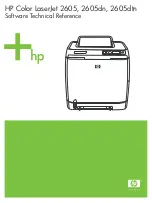
Ethernet Automatic Protection Switching
ExtremeWare XOS 11.3 Concepts Guide
414
Flushing the FDBs
When a controller goes into or out of the “blocking” state, the controller sends a “flush fdb” message to
flush all of the FDBs of the switches in its segments. Each switch in the path of the “flush fdb” message
flushes its FDB.
In a network with multiple EAPS ports in the blocking state, the “flush fdb” message gets propagated
across the boundaries of the EAPS domains.
Creating and Deleting a Shared Port
To configure a common link, you must create a shared port on each switch belonging to the common
link. To create a shared port, use the following command:
create eaps shared-port <ports>
where
ports
is the common link port.
NOTE
A switch can have a maximum of two shared ports.
To delete a shared port on the switch, use the following command:
delete eaps shared-port <ports>
Defining the Mode of the Shared Port
The shared port on one end of the common link must be configured to be the controller. This is the end
responsible for blocking ports when the common link fails thereby preventing the superloop.
The shared port on the other end of the common link must be configured to be the partner. This end
does not participate in any form of blocking. It is responsible for only sending and receiving health-
check messages.
To configure the mode of the shared port, use the following command:
configure eaps shared-port <ports> mode <controller | partner>
Configuring the Link ID of the Shared Port
Each common link in the EAPS network must have a unique link ID. The controller and partner shared
ports belonging to the same common link must have
matching
link IDs. No other instance in the
network should have that link ID.
To configure the link ID of the shared port, use the following command:
configure eaps shared-port <ports> link-id <id>
Summary of Contents for ExtremeWare XOS 11.3
Page 20: ...Contents ExtremeWare XOS 11 3 Concepts Guide 20...
Page 25: ...1 Using ExtremeWare XOS...
Page 26: ......
Page 38: ...ExtremeWare XOS Overview ExtremeWare XOS 11 3 Concepts Guide 38...
Page 58: ...Accessing the Switch ExtremeWare XOS 11 3 Concepts Guide 58...
Page 146: ...Configuring Slots and Ports on a Switch ExtremeWare XOS 11 3 Concepts Guide 146...
Page 218: ...Status Monitoring and Statistics ExtremeWare XOS 11 3 Concepts Guide 218...
Page 240: ...Virtual LANs ExtremeWare XOS 11 3 Concepts Guide 240...
Page 248: ...Virtual Routers ExtremeWare XOS 11 3 Concepts Guide 248...
Page 278: ...Access Lists ACLs ExtremeWare XOS 11 3 Concepts Guide 278...
Page 288: ...Routing Policies ExtremeWare XOS 11 3 Concepts Guide 288 entry deny_rest if then deny...
Page 344: ...Security ExtremeWare XOS 11 3 Concepts Guide 344...
Page 393: ...2 Using Switching and Routing Protocols...
Page 394: ......
Page 454: ...Spanning Tree Protocol ExtremeWare XOS 11 3 Concepts Guide 454...
Page 484: ...Extreme Standby Router Protocol ExtremeWare XOS 11 3 Concepts Guide 484...
Page 514: ...IPv4 Unicast Routing ExtremeWare XOS 11 3 Concepts Guide 514...
Page 530: ...IPv6 Unicast Routing ExtremeWare XOS 11 3 Concepts Guide 530...
Page 538: ...RIP ExtremeWare XOS 11 3 Concepts Guide 538...
Page 556: ...OSPF ExtremeWare XOS 11 3 Concepts Guide 556...
Page 566: ...OSPFv3 ExtremeWare XOS 11 3 Concepts Guide 566...
Page 589: ...3 Appendixes...
Page 590: ......
Page 640: ...CNA Agent ExtremeWare XOS 11 3 Concepts Guide 640...
Page 670: ...Glossary ExtremeWare XOS 11 3 Concepts Guide 670...
Page 698: ...Index ExtremeWare XOS 11 3 Concepts Guide 698...
















































